Thank you for the mention, Dr. Jayne — we appreciate the callout, the kind words and learning more about the…
News 8/26/15
Top News

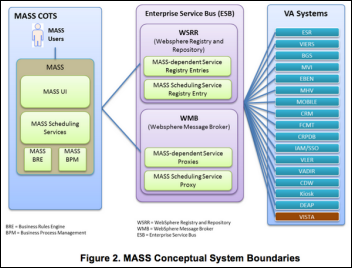
The VA awards its Medical Appointment Scheduling System (MASS) bid to one of its often-used contractors, Lockheed Martin-owned Systems Made Simple, which earns a seven-year, $624 million contract. The software supplier will be Epic, which gives the company a big win following the Leidos-Cerner-Accenture DoD selection. The VA issued its RFP for a commercial patient scheduling system in November 2014 following a nationwide patient wait time scandal. Lockheed Martin acquired the government healthcare IT contractor in October 2014 for an undisclosed price.
Reader Comments
From 4nER: “Re: Optum’s international push. It has dwindled – their UK-based CEO has left, Brazil acquisition Amil is struggling, and Virgin Care has beaten Optum in many NHS bids.” Unverified.
From You Don’t Need a Weatherman: “Re: Meditech. Opinion is they got into ambulatory and Web too late. As sites wait for MU Stage 3 and evaluate their vendors, Meditech is being evaluated by those sites. The timing may be perfect as Web EHR and Acute will be rolling out of 6.X as Stage 3 progresses.”
From Mark Pro: “Re: marketing people. You complain a lot about them. Don’t they do anything well?” As in most professions, the few incompetent, inexperienced, or overworked ones give the others an undeserved black eye. My favorite MBA topic by far was marketing (my second favorite was finance, strangely enough) and I really enjoyed learning about product positioning, channels, how marketing differs from advertising, etc. Marketing done right is education, collaboration, and orchestrating the intersection of product supply and customer demand. What puts a healthcare IT marketing person on my bad side:
- Putting out incomprehensible announcements that are a BS buzzword tsunami clearly assembled by a roomful of people who are trying to advance their personal company stature rather than create clarity.
- Expecting instant responses to their banal emails, always “circling back” because I’m too busy doing something important (like writing HIStalk) to respond immediately to their unsolicited questions. Just because you sent something I didn’t ask for doesn’t mean I’m obligated to acknowledge that I received it or to do anything more than hit “delete.”
- Trying to do everything by committee, bugging Lorre to get on a call with a roomful of their people and then flooding her inbox with emails from each of them asking and re-asking questions she already answered. Usually that happens after they fail to read what she sent them earlier, preferring instead to waste everybody’s time in having it read to them over the phone.
- Not following my rules, such as checking off the Readers Write submission box that says the article hasn’t appeared elsewhere, but then I find it posted on their company blog (I always Google before I run a guest post). That usually gets them banned.
- Asking me to interview a brand new CEO (who doesn’t even know where the restrooms are yet) or an executive involved in a product launch (gee, wonder if they’ll say anything controversial?)
- Not understanding the dynamic that I alone decide what I write, who I interview, or which products or news I consider worthy of reader time. I’m fine with companies suggesting that I interview their CEO, but I won’t allow marketing or PR people to participate. Lorre books most of the interviews for me and warns them upfront, “If he gets on the interview call and people other than the CEO are on the line, I guarantee you he’s going to hang up.” I like that nobody can whine over my head about my decisions – it’s just me, I have a long memory, and I won’t even pretend to like people who annoy me.
The marketing people I consider peers:
- Are not new to healthcare IT, having paid their dues and learned the business, which probably means they have lost their youthful, chirpy innocence and can communicate as professionals.
- Enjoy HIStalk and follow it even after they change jobs, often keeping in touch afterward.
- Offer me what I need instead of what the company wants, perhaps offering to arrange an interview with a customer instead of a company executive who I’d turn down (I only interview CEOs except in rare occasions.)
- Know not to waste my time with ghostwritten, worthless Readers Write articles that I’ll reject anyway.
- Apologize when I call out an announcement, a newly rebranded product, or a company action as idiotic – sometimes they agree it’s bad, but explain that were overruled by the empty suits above them.
- Request and accept my advice about how to improve an announcement, design and promote a webinar, or eliminate obvious mistakes or omissions in their web pages. I don’t volunteer to do that sort of thing, but if if someone asks and then ignores my input, I’m not going to jump at the chance to do them another favor.
HIStalk Announcements and Requests

Jenn covered Monday’s post for me since I needed a long weekend, so I told her I’d set up a new poll when I returned. Last week’s poll respondents forced to make a big company investment would choose Health Catalyst by far, followed by NantHealth and Evolent Health. Mobile Man says Nant shows how little even smart people know about healthcare, while JR commented that some of the companies have decent prospects but he isn’t sure you’d get your money back investing in any of them at this point in their trajectory. New poll to your right or here: what will happen following the scheduled October 1 switchover to ICD-10?
Welcome to new HIStalk Platinum Sponsor Stanson Health, which is also sponsoring HIStalk Practice at the Platinum level. The Los Angeles-based company provides easily implemented intelligent clinical decision support delivered at the point of care. Evidence-based content targets unnecessary tests and treatments while supporting Choosing Wisely and PQRS, while analytics helps organizations understand ordering patterns and identify opportunities. Of particular interest is the company’s advanced imaging content that works with any source of appropriate use criteria to reduce unnecessary imaging, inspecting 30 patient-specific data elements to minimize interruptions while tripling the inappropriate order cancellation rate compared to competitors. Cedars-Sinai Health System is saving $6 million per year after adding Stanson-powered Choosing Wisely recommendations into Epic (example: ordering an antibiotic for a patient with bronchitis issues a reminder that they don’t work for viral infections). The company also understands that patients may resist the “less medicine is sometimes better” message and has licensed content from Consumer Reports to provide them with friendly educational material. Stanson Health was co-founded by Scott Weingarten, MD, MPH (formerly co-founder and CEO of Zynx Health, now SVP/chief clinical transformation officer at Cedars-Sinai) and Darren Dworkin (SVP/CIO of Cedars-Sinai). I notice that Rick Adam is president and COO – he’s been in the industry forever as founder of Recondo Technology and New Era of Networks as well as being an executive in the early health IT days of Travenol (later Baxter). Thanks to Stanson Health for supporting HIStalk and HIStalk Practice.
Thinking about Rick Adam sent me to the online archives, where I turned up this exclamation-point filled 1986 THIS ad from Computerworld. I haven’t been able to track down Frank Russo, who took the company through a few more gasping iterations before turning the keys over to Jeff Goodman, who was axed after the company was sold to HBOC in 1994.

Mr. S wrote that his third grade class in Herminie, PA benefited from our contribution of STEM learning material (with matching funds from Chevron) just as the school year ended, giving his students new materials to master tricky topics that had come up through the year. He adds, “It is very important to give students every means possible of succeeding in life. Not every child learns the same way and not every child is interested in the same topics. These materials have allowed my students to succeed in my classroom in new ways and new topics. Thank you for caring about education and specifically caring about my classroom!” I still have matching money available from a generous vendor executive for companies that would like to contribute to other DonorsChoose projects via HIStalk now that the new school year is underway.
Also from my DonorsChoose project, Teach for America teacher Ms. S in Illinois, who offers an extracurricular programming class that tries to boost the numbers of female, black, and Hispanic students interested in technology, says her kids responded with “soooo cool!” to see the MacBook accessories we purchased (SuperDrive, external hard drive, case, and cables). Our funding of $264 paid for the entire setup plus the optional donation to DonorsChoose.
Webinars
September 9 (Wednesday) 2:00 ET. “Need to cleanse, unify and manage the provider data in your EMR master file and other IT systems?” Phynd’s Unified Provider Management platform allows healthcare organizations to maintain a single, verified, customized profile for each provider across legacy IT systems. This 30-minute presentation will explain how Phynd’s system can help synchronize internal provider information in real time; create provider interoperability among systems; and manage, update, and analyze provider information with workflow tools to improve revenue cycle and clinical communication.
Previous webinars are on the YouTube channel. Contact Lorre for webinar services including discounts for signing up by Labor Day.
Frank Poggio and Vince Ciotti delivered another brutally honest and opinionated HIStalk webinar on Tuesday, talking about the DoD EHR bid and how it will affect Cerner, Epic, and everybody else. I sponsored this one (meaning nobody paid anybody, in other words) and I’d be surprised if you don’t find it at least entertaining because people who’ve been in the business for a long time like Frank and Vince tend to have lost most of their muzzle and say whatever’s on their mind. If you have a non-commercial, informative, educational message that readers would enjoy, let me know and maybe you can do a webinar of your own.
Acquisitions, Funding, Business, and Stock
Cardinal Health will acquire 71 percent of Nashville-based post-acute care services and analytics vendor NaviHealth for $290 million in cash.
Zephyr Health, which offers drug companies analytics to predict new product success using public and private databases, raises $17.5 million in funding led by Google Ventures, increasing its total to $33.5 million.
Sales
The fire and ambulance services of Alameda, CA will use the Mediview patient care records, charting, and telemedicine pre-hospital application from Beyond Lucid Technologies.
Legacy Health (OR) chooses StrataJazz Continuous Cost Improvement as part of its five-year renewal for the full suite of Strata Decision’s products.
Missouri Delta Medical Center (MO) chooses PatientMatters for help with patient access, registration, and scheduling.
Vantage Oncology selects Wellcentive’s quality reporting and population health management solution for PQRS reporting.
Phynd Technologies recaps the six health systems that have recently signed for its Unified Provider Management Platform: Cone Health, Mount Sinai Medical Center, Kettering Health, Dayton Children’s Hospital, SCL Health System, and Presence Health.
Abington-Jefferson Health (PA) chooses the Paymode-X network from Bottomline Technologies to automate vendor payments.
Meridian Health (NJ) selects labor management solutions from Avantas.
People
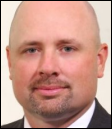

WeiserMazars LLP brings on Todd Heckman (PwC) and Jonathan Stromberger as consulting principals.

Northern Inyo County Hospital (CA) hires Kevin Flanigan, MD, MBA (MaineCare) as chief medical officer/COO/CIO.

Lisa McVey (McKesson) is named EVP for technology and operations at the newly opened Atlanta office of health improvement technology vendor BioIQ .

Thomas Graf, MD (Geisinger Health System) joins The Chartis Group as national director of population health management.

Renowned Texas surgeon James H. “Red” Duke, MD died Tuesday at 86. He was an Army veteran, professor, trauma program developer, TV personality, and cowboy folk hero. He treated President John F. Kennedy and Governor John Connally at Dallas’s Parkland Memorial Hospital on November 22, 1963 while a surgical resident. Those of a certain age will remember him from a riveting episode of the groundbreaking 1978-1979 NBC reality medical program “Operation: Lifeline” and his 15-year stint as a nationally syndicated health reporter.
Announcements and Implementations
Cerner and Hospira will further integrate the former’s EHR with the latter’s smart IV pumps using Cerner’s CareAware iBus.
Imprivata launches PatientSecure, the palm vein scanning biometric patient ID system it acquired as part of its April 2015 acquisition of HT Systems.
Five Cerner clients in the Pacific Northwest will use CommonWell to exchange information with practices using Greenway, Athenahealth, and other systems connected to CommonWell.
Modern Healthcare names its 2015 Best Places to Work, which like every healthcare magazine’s “list” has as its primary objective selling advertising rather than conducting useful, scientifically valid research. Still, I’ll mention those HIStalk sponsor companies so named since (a) they like the recognition; (b) the awards really are driven by employee surveys; and (c) they’re good companies in multiple ways at least from the folks I know from each one: Burwood Group, CoverMyMeds, CTG Health Solutions, Cumberland Consulting Group, Divurgent, Galen Healthcare Solutions, Hayes Management Consulting, Health Catalyst, Impact Advisors, Imprivata, Park Place International, Santa Rosa Consulting, The Advisory Board Company, and The Chartis Group.
Practice Fusion will connect to Theranos for labs and RadNet for imaging in two states, collecting fees from those companies in return for connecting them with its users (that and selling supposedly de-identified patient data and pushing ads at doctors are its main revenue sources). We’ll see some interesting figures if the 10-year-old company ever does an IPO given its suggested market value of $700 million. All of that revenue requires keeping its free EHR users happy, so perhaps the incentives are well aligned for everyone.
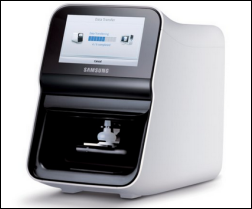
Medical kiosk vendor HealthSpot will roll out a new Samsung blood chemistry analyzer that will give patients their results for certain blood tests in seven minutes. It’s fascinating how quickly the tedious lab draw and results reporting process is disintermediating, just as dramatically as when lab techs were mostly replaced with sophisticated high-volume instruments, which in return came about because of regulations and when big reference labs convinced individual medical practices to stop running their own labs. With Theranos already doing tests without a doctor’s order in Arizona, the whole process may soon be in the hands of consumers.
Government and Politics
A US appeals court says hotel operator Wyndham Worldwide can be sued by the Federal Trade Commission for allowing hackers to breach its systems in stealing the credit card information of 619,000 customers. Wyndham argued that the FTC had exceeded its powers similar to being allowed to “regulate the locks on hotel room doors,” while the court responded, “Were Wyndham a supermarket, leaving so many banana peels all over the place that 619,000 customers fall hardly suggests it should be immune from liability.”
Privacy and Security
An interesting article (with healthcare consumer implications) says future currency will be data, not money, and everybody’s personal data is being taken by social networking companies whose terms of service allow them to steal photos and files under the pretense of improving their product. The interesting conclusion: perhaps individuals (and patients) should create their personal API that puts the ownership and control of the information back into the hands of the person to which it pertains. The discussion was triggered by new terms of service from streaming music Spotify, which requires users to give the company access to their photos, contacts, and device locations.
Technology
A web ad piqued my curiosity about PillPack, a Boston-based online consumer pharmacy that just raised $50 million to expand its reach in offering individual prescription dose packs broken out into time due. The company manages all aspects of the prescription, from packaging and shipping to insurance, and will use its new funding to open brick-and-mortar storefronts and to roll out an app that will connect patients to pharmacists. The founder-pharmacist, described as looking like “the guy who you might buy pot from at a Dead concert,” says, “We should probably hire a finance guy.”
Other
A Tennessee company that runs skilled nursing and rehab facilities is forced into restructuring after implementing an EHR that caused billing delays and cash flow problems that led to its defaulting on a loan. The acting CEO, a partner with the company hired to turn the company around, says he’s seen paper-to-digital conversions cause financial problems across the country.
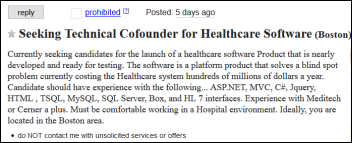
This is an unusual Craigslist ad.
BIDMC CIO John Halamka, MD says that in planning for FY16, clinicians spend too much time documenting in poorly designed EHR tools that were designed for capturing information, not managing customer relationships. He adds that consumer apps have raised user expectations and those will have to be bolted on to EHR transaction capabilities because “the difference between the $2 app and the $2 billion EHR is that the $2 app is easier to use, more convenient, and possibly even more useful.”

Phoenix-based Banner Health, which bought Tucson’s University of Arizona Health Network in February and isn’t happy with that organization’s losses, will convert UAHN from Epic to its own Cerner system as everybody expected and will cut $100 million of UAHN’s overhead over the next three years. UAHN spent at least $115 million implementing Epic with a November 2013 go-live, which may be the only case where an over budget EHR implementation caused such significant financial woes that an academic medical center had to sell out to a competitor.
Texas physicians will be paid for school-based telemedicine consultations with Medicaid-enrolled students whose parents have signed consent forms starting September 1. Proponents say it will keep kids in school and parents at work instead of sending them both home, while opponents question why non-Medicaid students are excluded and whether remote physicians will have enough information about the students to treat them properly.
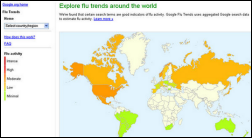
Google shuts down its Flu Trends tracker, which got people excited for some reason back in 2008 even though its premise was ridiculous – that it could detect worldwide flu outbreaks by looking at search term patterns in a crude form of big data analysis. Not too shockingly, it didn’t work, and even if it had been able to identify outbreaks, the information would have done little to stop their spread.
Stanford University offers its online-delivered, $3,500 Genetics and Genomics Certificate. Just added to the curriculum is the elective course “Personal Genomics and Your Health,” which can be taken for $495.

A bookkeeper of Buffalo, MN-based mammography informatics vendor PenRad Technologies is charged with stealing $700,000 from the company and using it to pay personal expenses and to buy silver bullion bars she stored in her house.
LA County’s second-highest-paid employee made $790,000 in 2014 without working a single day. The former chief medical officer of Harbor-UCLA Medical Center earned the money as a partial settlement after he was fired for unstated reasons (rumored to be related to his medical credentials), sued the county for defamation, then turned down its job offer and retired.

New York’s Beth Israel Medical Center wiggles out of a $95 million lawsuit brought by the family of a wealthy heiress who claimed she was detained in a private room for several years solely to extract money from her when the statute of limitations runs out. The lawsuit charged the hospital with keeping the perfectly healthy woman in a $1,200 per day private room while hitting her up constantly for donations, including a $3 million painting the family said she donated under pressure.
A state health department in Malaysia is investigating a doctor who posted a photo of herself flashing the peace sign along with a patient in labor whose genitals were fully exposed. The doctor had a reputation for taking perioperative selfies.
It’s not HIT-related, but if you need your spirits raised, check out this video sent over by The PACS Designer of the United States Navy Band performing hits by Frankie Valli and the Four Seasons.
Sponsor Updates
- ZirMed Chief Data Scientist Paul Bradley, PhD will present at two upcoming big data conferences.
- PatientSafe Solutions posts “Medication Reconciliation Safety Concerns Linger Even with EHRs.”
- KLAS’s 2015 mid-year report ranks MModal’s Fluency for Imaging as the highest-ranking front-end speech recognition solution for diagnostic imaging.
- Black Book Rankings names the Looking Glass enterprise content management system from Streamline Health Solutions as number one in financial management and content management solutions.
- AdvancedMD offers “PRM Software Capabilities, part 2 of 2.”
- Awarepoint offers a video on caregiver enablement via healthcare technology.
- Besler Consulting offers “IPPS Advisor: In-depth review of the FY 2016 IPPS Final Rule.”
- Bottomline Technologies will exhibit at the California Association of Healthcare Admissions Management event August 30-September 2 in Sonoma.
- CoverMyMeds Director Julie Hessick is named a finalist for Technology Innovator of the Year at the Next-Generation Pharmacist awards.
- Stanson Health will exhibit at UHC’s annual conference in Orlando and will participate in its Member Innovation Expo and Reception on October 1.
- Culbert Healthcare Solutions offers “The Defining Moments Leading Up to ICD-10.”
- MedCPU takes home the 2015 Interactive Media Award for Best Website in Healthcare from the Interactive Media Council.
Contacts
Mr. H, Lorre, Jennifer, Dr. Jayne, Dr. Gregg, Lt. Dan.
More news: HIStalk Practice, HIStalk Connect.
Get HIStalk updates.
Contact us or send news tips online.



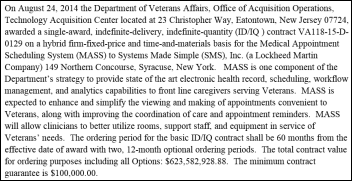

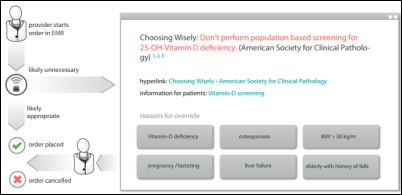


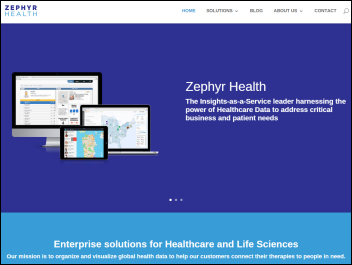
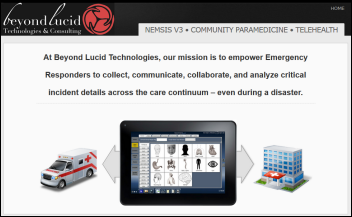
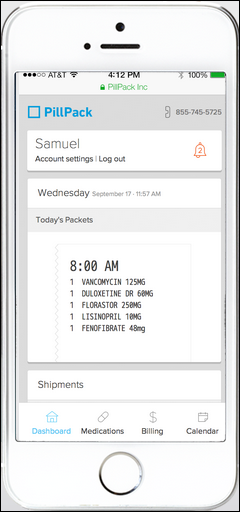


Regarding the exclamation-filled Travenol Information Systems ad from 1986: While Baxter was sold to HBOC, the HIS system noted in the ad (Compucare) was repurchased by Ron Apprahamian. (Clever Ron sold it to Baxter for $16M and repurchased it for $3M, or so the story goes…) In 1999 Compucare was sold to QuadraMed. QuadraMed was then sold to N. Harris Computer in 2010. The clinical portion of the former Compucare HIS system was sunset when QuadraMed purchased QCPR in 2007. The patient accounting system was rewritten in 1992 (Affinity) and released as a full-scale, enterprise-based revenue cycle system. Cobol and MIIS were kicked to the curb. Affinity utilizes InterSystems Cache. QuadraMed’s revenue cycle system has received more KLAS accolades than any other hospital-based enterprise RCM system in the market. Affinity Revenue Cycle is alive, well, and very competitive.